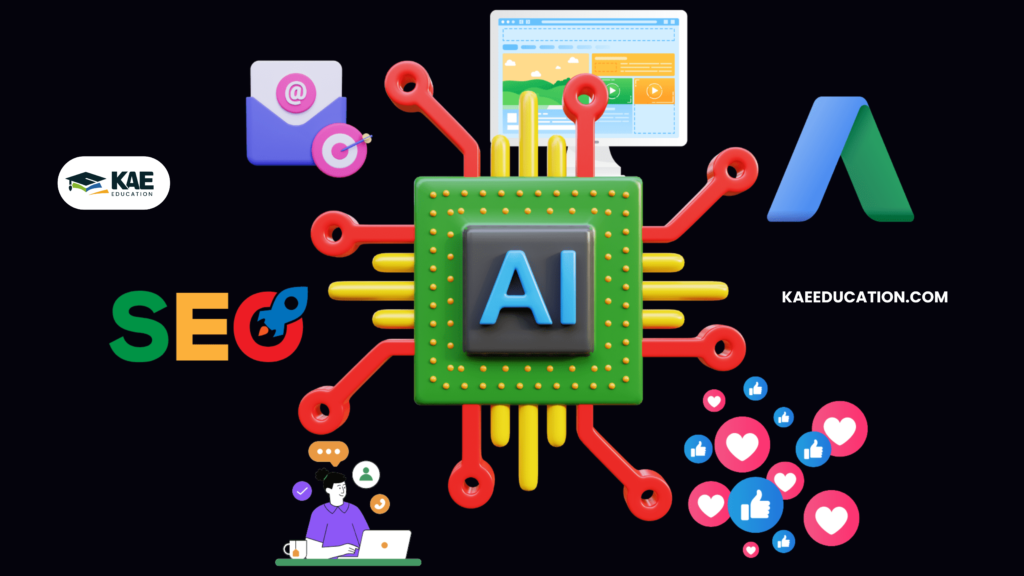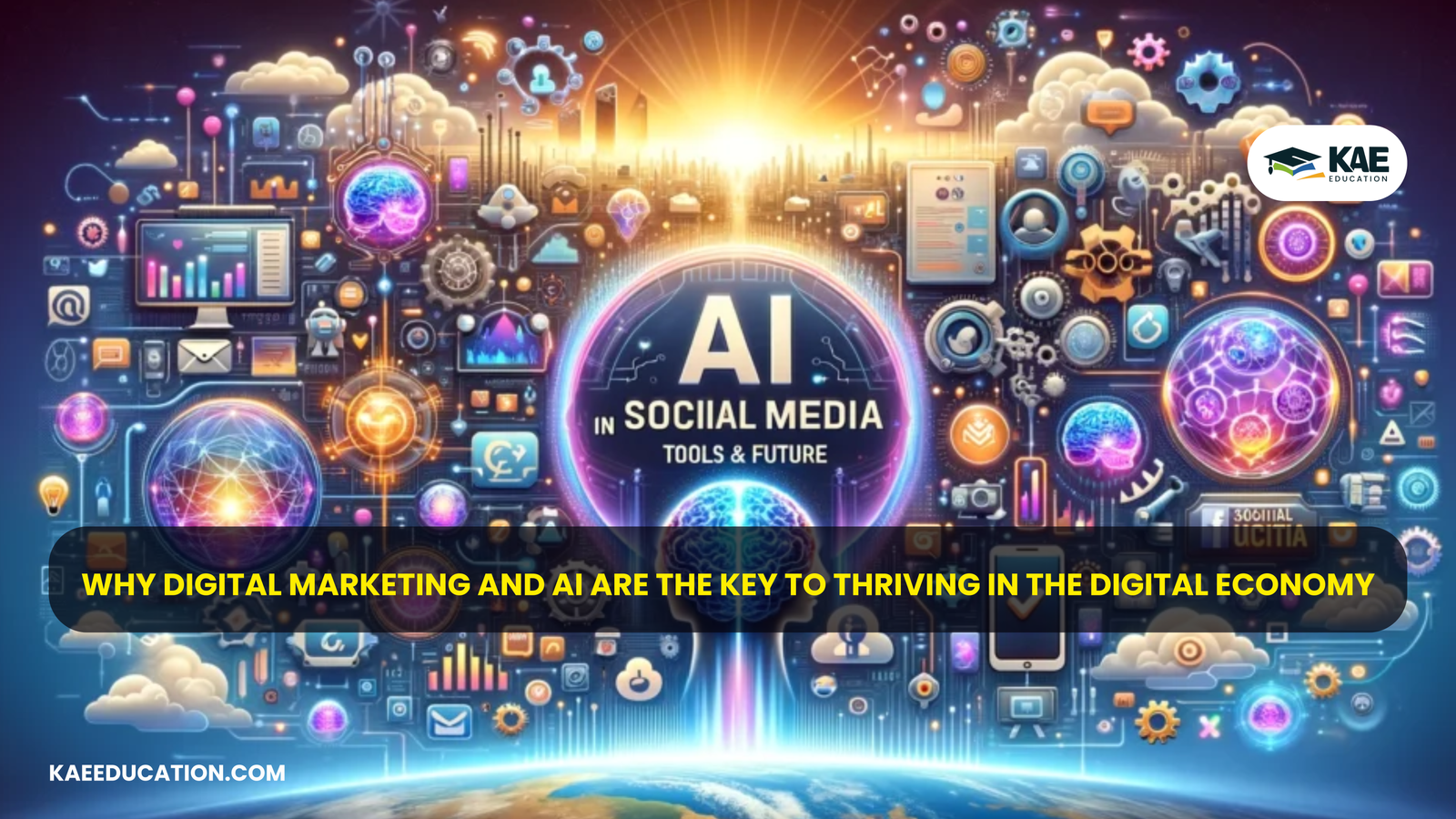Why Digital Marketing and AI Are the Key to Thriving in the Digital Economy
In today’s fast-paced world, the combination of Digital marketing and AI has revolutionized how Businesses operate and engage with their audiences. From personalizing customer experiences to automating complex processes, these two forces are redefining the landscape of the digital economy. For professionals and students, mastering these skills is no longer optional—it’s a necessity to stay relevant and thrive in the modern marketplace.
The Role of Digital Marketing and AI in the Digital Economy
(1) Personalization at Scale
AI enables Digital marketers to deliver highly personalized content to customers by analyzing vast amounts of data. Personalized recommendations, tailored ads, and individualized email campaigns result in higher engagement and conversions.
(2) Data-Driven Strategies
AI empowers marketers to leverage data analytics for predicting customer behavior, identifying trends, and optimizing campaigns. This leads to better ROI and more informed decision-making.
(3) Automation of Marketing Processes
AI-powered tools simplify repetitive tasks like Email marketing, Social media scheduling, and ad optimization, allowing marketers to focus on strategy and creativity.
(4) Enhanced Customer Engagement
Chatbots, voice search, and AI-driven virtual assistants improve customer interactions by providing instant responses and solutions. This increases brand loyalty and trust.
(5) Cost Efficiency
Digital marketing coupled with AI reduces costs by automating labor-intensive processes and optimizing ad spend, making it accessible for Businesses of all sizes.
Benefits of Learning Digital Marketing and AI
(1) Career Opportunities: Mastering these skills opens doors to high-demand roles like AI specialist, Digital marketing strategist, and data analyst.
(2) Global Reach: By connecting companies with audiences across the globe, digital marketing opens up new job opportunities.
(3) Competitive Edge: Professionals with AI-integrated marketing skills stand out in the job market.

(4) Creative and Analytical Growth: Blend creativity with data-driven decision-making for impactful campaigns.
(5) Future-Ready Skillset: Stay ahead in the evolving digital economy.
Key Components of Digital Marketing and AI
(1) Search Engine Optimization (SEO)
(2) Content Marketing and AI Content Generators
(3) Social Media Marketing
(4) AI-Powered Predictive Analytics
(5) Pay-Per-Click (PPC) Advertising
(6) Email Automation and Personalization
(7) AI Chatbots and Customer Interaction Tools
Future Demand and Growth in 2024-2025
The global Digital marketing and AI market is expected to grow exponentially, driven by advancements in Machine learning, Natural Language Processing, and automation tools. Businesses will invest heavily in AI-driven marketing solutions to remain competitive. Professionals skilled in these areas will be highly sought after, with roles in AI marketing, Data analytics, and digital strategy leading the way.
Ready to lead the digital revolution? Enroll in KAE Education’s Digital Marketing and AI courses today and secure your future in the digital economy!
FAQs About Digital Marketing and AI
AI enhances Digital marketing by analyzing data, automating tasks, personalizing content, and predicting trends to improve campaign effectiveness.
Digital marketing helps Businesses connect with their target audience globally, enabling cost-effective and measurable campaigns.
Key skills include SEO, Data analysis, Machine learning basics, PPC advertising, and content strategy.
AI isn’t replacing marketers but enhancing their capabilities by automating repetitive tasks and providing deeper insights for strategy.
Yes, beginner-friendly courses and tools make it easy for anyone to learn Digital marketing and AI from scratch.
Among the positions are data-driven content marketer, social media strategist, AI specialist, and digital marketing manager.
KAE Education offers expert-designed courses in digital marketing and AI, providing practical learning, certifications, and career support.

